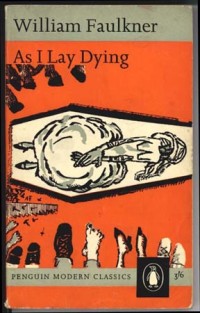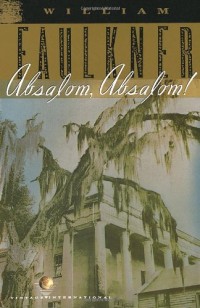Tag: William Faulkner

When William Faulkner arrived in Stockholm to receive his Nobel prize for literature he supposedly declared his occupation as “farmer.” (Inge p. 122) Which raises a question—what kind of farmer describes a road “heavy with sixty days of dust, the roadside undergrowth coated with heat-vulcanised dust … [standing] at perpendicular’s absolute in some old dead … Read More

The great modernists did not share postmodernists’ suspicion of science. Leopold Bloom, for example, the protagonist of James Joyce’s Ulysses, has physics concepts banging around in his head that reflect Joyce’s genuine curiosity about new discoveries in astronomy and other fields. In the Ithaca chapter of Ulysses, Bloom points out constellations in the night sky, … Read More

William Faulkner, the colossus of American modernism who often said he wrote “to depict the human heart in conflict with itself,” was not an overtly political writer, but I know what he would have made of our latest national demagogue, Donald Trump. Faulkner knew a redneck when he saw one and Trump is a redneck, even … Read More

Dubliners was James Joyce’s first book, and it’s his most accessible, and possibly his most influential. The critic A. Walton Litz called Dubliners “a turning point in the development of English fiction.” Marc Wollaeger, editor of the Oxford Casebook on A Portrait of the Artist as a Young Man, writes that “Dubliners … virtually invented … Read More

Biographer David Minter relays a fitting anecdote about Faulkner in Oxford, Mississippi, when Faulkner was less than ten years old. Young William and his grandmother, who he called “Damuddy,” liked to build “miniature villages in the family’s front yard,” Minter writes, “using sticks, grass, stones, and glass.” As an adult, Faulkner carried on building imaginary … Read More